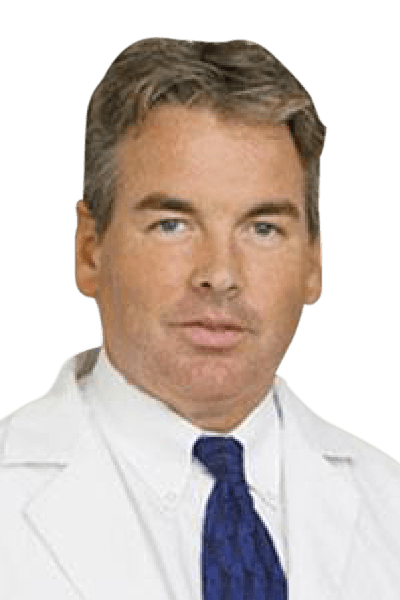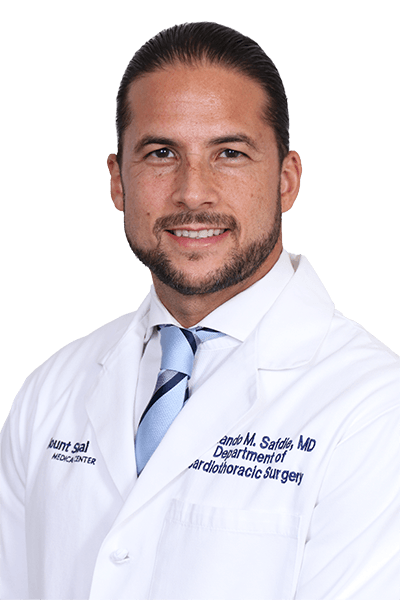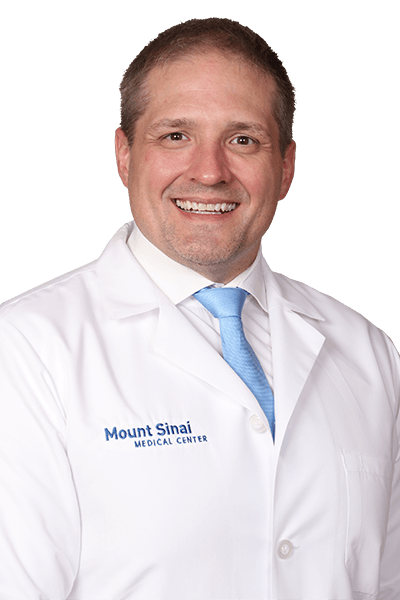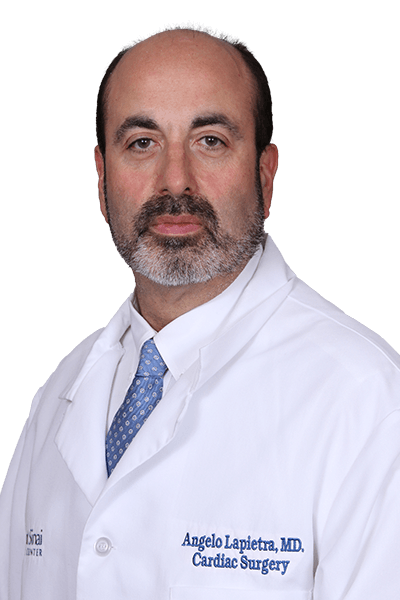Airway & Trachea Surgeries
Airway & Trachea Surgeries
Airway & Trachea Surgeries
Airway & Trachea Surgeries
Airway & Trachea Surgeries
Airway & Trachea Surgeries
Diseases of the airway make breathing difficult and can greatly diminish a person’s quality of life. The trachea, or windpipe, carries air into the lungs as it passes by the larynx (voice box) and through the bronchi (tubes that lead to the lungs). The Airway and Tracheal Surgery Program at Mount Sinai Medical Center provides specialized treatments for conditions affecting all parts of the airway. We offer the most comprehensive evaluation, diagnosis, and treatment for conditions that affect this delicate and vital area of the body.
Our skilled team of surgeons, anesthesiologists, nurses, and rehabilitation therapists work with more patients who have airway and tracheal conditions each year, compared to other facilities in our region. We create customized treatment plans for every person under our care.
Conditions We Treat
This is the narrowing of the “windpipe,” and it restricts the ability to breathe properly. It can be caused by trauma to the throat, severe infections, and tumors. It can also be caused by long-term intubation, which is when doctors insert a breathing tube through the mouth and throat in order to have a mechanical ventilation machine help a patient breathe. In cases of severe extended illness, such as COVID, being on a ventilator for long periods can cause scarring within the trachea that needs to be repaired once the patient is no longer on the ventilator.
Tracheal stenosis is diagnosed with imaging, such as X-ray or CT scan, or a scope examination of the trachea, voice box, and bronchi. The method of correction varies based on the level of damage. Laser surgery can remove some damaged tissue, and a stent can be placed to widen the airway. In some cases, stenosis is corrected surgically by removing the damaged section of the trachea and reconstructing the remaining sections.
A fistula is an abnormal connection between two structures that should not be connected. In this case, the esophagus, which connects your mouth to your stomach, fuses together with the trachea, the tube that connects your mouth to your lungs. Most cases of TEF are the result of a congenital defect and are treated in infancy. As a result of the connection between the esophagus and the trachea, liquid or food can enter the lungs. Symptoms of TEF include coughing or choking when feeding, breathing problems, and lung infections. Our team diagnoses TEF with a visual assessment using a scope through the mouth while the patient is under sedation.
Mount Sinai’s thoracic surgeons are skilled in separating the trachea and esophagus. Dr. Safdie has completed one of only a few cases of a totally endoscopic tracheoesophageal fistula repair. The separation restores the intended function of each organ, relieves any discomfort from swallowing, and prevents future medical issues caused by abnormal anatomy.
This condition happens when the airway is weak and collapses, partially or completely, when the patient breathes out. TBM can be congenital or acquired from an illness or injury. The severity of weakness and collapse can vary, but medical intervention from a team of specialists at Mount Sinai Medical Center supports recovery and improvement in quality of life.
After diagnosing TBM with a scope, your thoracic surgeon can bolster the damaged airway by inserting a stent to support the weakened area. In some severe cases, our surgeons will complete a tracheobronchoplasty, the process of pulling open and reinforcing the collapsed airway with mesh. This complex robotic-assisted procedure is only performed in a limited number of facilities in the country.
Airway & Trachea Surgeries
Our Physicians
Roy F Williams, MD
Chief, Divison of Thoracic Surgery
- Cardiology
- Robotic Surgery
- Thoracic & Cardiovascular Surgery
- Lung Cancer
- Mount Sinai Medical Center (Main Campus)
- 305.674.2121
Fernando Safdie, MD
Director of Endoluminal and Airway Surgery
Associate Director of Thoracic Surgery
Division of Cardiothoracic Surgery
- Robotic Surgery
- Thoracic & Cardiovascular Surgery
- Lung Cancer
- Mount Sinai Medical Center (Main Campus)
- 305.674.2121
Steven R DeBeer, MD
Co-Director, Aortic Center
- Cardiac Surgery
- Robotic Surgery
- Thoracic & Cardiovascular Surgery
- Aortic Aneurysm Repair
- Mount Sinai Medical Center (Main Campus)
- 305.674.2121
Angelo La Pietra, MD
Director, Surgical Electrophysiology
- Cardiac Surgery
- Cardiology
- Thoracic & Cardiovascular Surgery
- Robotic Surgery
- Mount Sinai Medical Center (Main Campus)
- 305.674.2121





